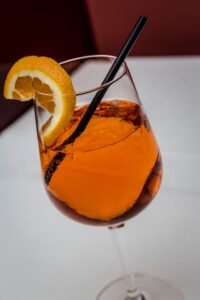How Does Off-Premise Liquor Liability Work?
 Liquor liability is a type of insurance commonly purchased by restaurant owners and country clubs to protect their business from being held liable for patron behaviors stemming from servicing alcohol.
Liquor liability is a type of insurance commonly purchased by restaurant owners and country clubs to protect their business from being held liable for patron behaviors stemming from servicing alcohol.
These behaviors can include:
- Drunk driving
- Fighting
- Harassment
- Slip and Fall Incidents
On-Premise Liability vs Off-Premise Liability
In short, liquor liability can be broken down into two forms of coverage: on-premise vs off-premise.
On-premise liquor liability protects your business from being held liable for patron behaviors that occur on your property, such as a physical altercation at the bar.
Off-premise liquor liability protects your business should it grow wheels and you find yourself selling alcohol outside of your primary location, such as catering an office party or traveling the open road in a delivery truck.
What does Off-Premise Liquor Liability Not Cover?
There are certain things that an off-premise liquor liability policy does not cover. For example, lawsuits filed in connection with a patron who was underage and drinking alcohol or slander/libel made against you or your establishment.
“Dram Shop” Laws
Originating in the mid-1800s, dram shop laws hold establishments responsible for servicing alcohol to a patron that is clearly intoxicated. 43 out of 50 states have enacted “dram shop” laws – including Massachusetts.
This fact increases the vitality of purchasing liquor liability insurance, even if it’s not required by your state. If you own a restaurant in Massachusetts, it’s absolutely mandatory for you to have liquor liability insurance.
Let’s take a look at an example of the “dram shop” law at work:
You service alcohol to Henry at an office party. After a few drinks, Henry starts slurring his speech and behaving erratically. Despite these clear warning signs, you continue to serve Henry. A half hour later, Henry stands up to use the bathroom and collides with Stephanie standing to the right of him. Stephanie stumbles and breaks her leg.
In this scenario, Stephanie can sue you under the dram shop law.
How much does liquor liability insurance cost?
This all depends on the amount of coverage you feel comfortable with purchasing. In Massachusetts, the minimum requirement is $250,000 per person / $500,000 per accident.
To get the best coverage to fit your needs, give Brian Kilcoyne a call at 617-612-6515 or email him at briankilcoyne@hkinsurance.com.
